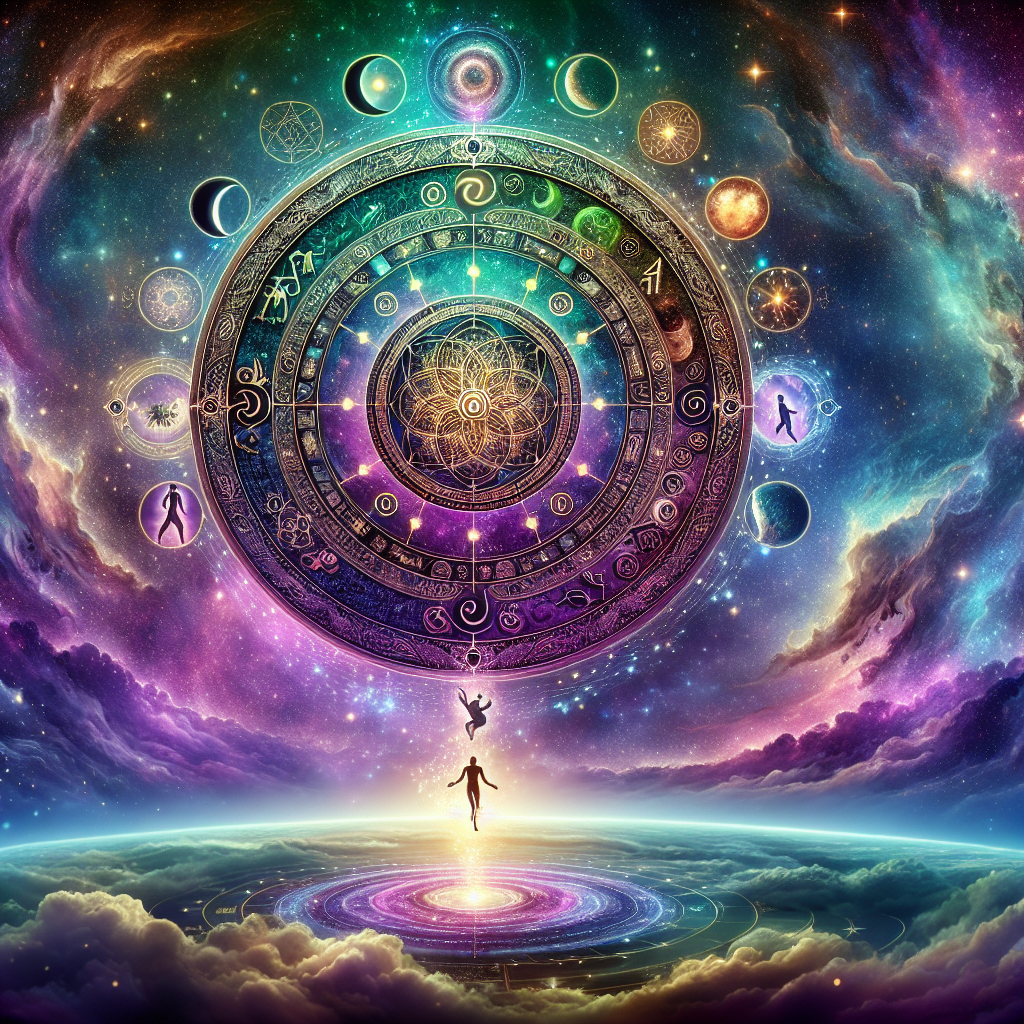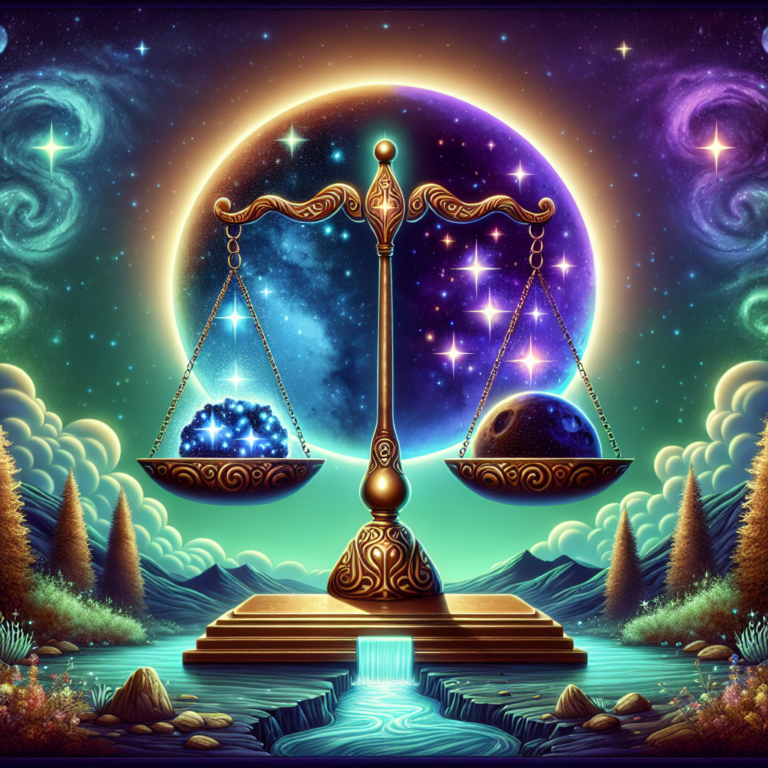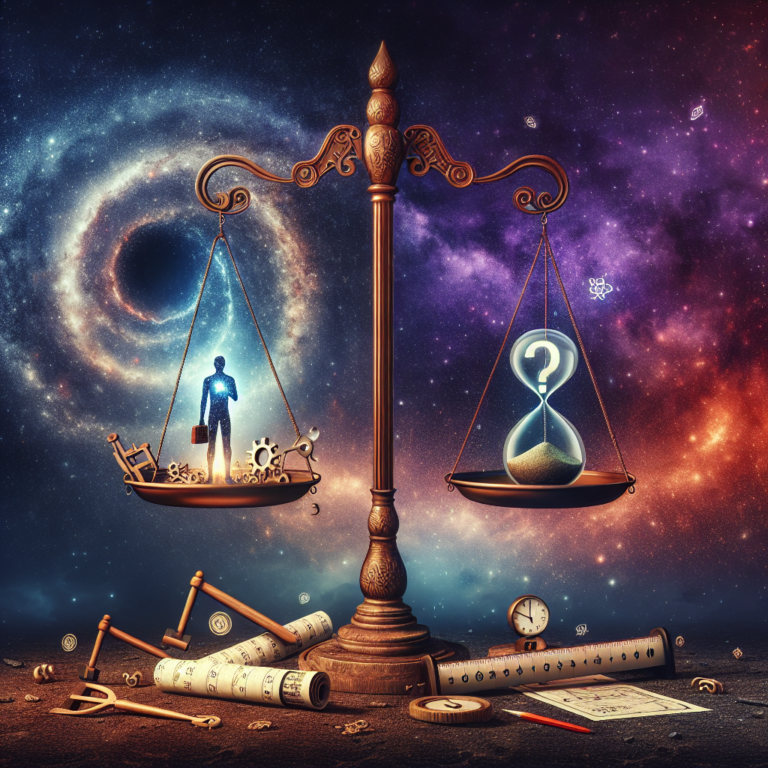Karma and Reincarnation: The Cosmic Dance of Cause and Effect
The concept of karma and reincarnation is one that transcends cultures and religions, resonating with individuals as they grapple with the ideas of justice, morality, and existence. At its core, karma suggests that every action has consequences, shaping our experiences and interactions. Reincarnation complements karma by positing that life is not a singular journey but rather a series of cycles that allow the soul to learn and grow through various experiences. Together, these concepts form a profound philosophical framework that highlights the interconnectedness of all beings and the ethical dimensions of existence.
Understanding Karma
The term "karma" comes from the Sanskrit word "karman," which means "action" or "deed." In many Eastern religions, including Hinduism and Buddhism, karma refers to the law of moral causation. Every intention, thought, and action creates an energetic imprint that influences future circumstances. This cosmic principle implies a moral universe where one’s good deeds can lead to beneficial outcomes, while negative actions can result in suffering. Karma, therefore, is not merely a system of rewards and punishments but a complex web that intertwines with the nature of consciousness itself.
Karma can be categorized into three main types:
-
Sanchita Karma: This refers to the accumulated karma from all past lives. It is the total repository of actions — both good and bad — that a soul carries into its current incarnation.
-
Prarabdha Karma: This is the portion of sanchita karma that has manifested in the present life. It defines the current circumstances, challenges, and inherent potentials one faces in the present reality.
- Kriyamana Karma: Also known as "present karma," this includes the actions and deeds performed in the current life that will shape future experiences, influencing both the immediate and long-term outcomes for the individual.
The Cycle of Reincarnation
Reincarnation, or samsara, is the belief that the soul is eternal and continues to be reborn into new physical forms after death. This cycle persists until the soul achieves liberation (moksha or nirvana), which is a state of enlightenment that transcends the cycles of birth and death. Different traditions may view the specifics of this cycle differently, but the underlying premise remains consistent: life is a transformative journey, with each incarnation serving as an opportunity for growth, learning, and spiritual elevation.
In Hinduism, reincarnation is tightly linked with the caste system and moral conduct. The actions of an individual in one life can significantly impact their social standing and circumstances in the next. However, the concept also emphasizes personal agency. Regardless of one’s hereditary position, individuals can mitigate adverse karma through virtuous actions and selfless service, drastically influencing their future lives.
In Buddhism, the concept of anatta, or "non-self," offers an intriguing perspective on reincarnation. Buddhism teaches that there is no permanent soul; instead, the continuity of identity arises from a collection of ever-changing forces. Karma, in this light, becomes an impersonal law that governs the process of rebirth, devoid of an unchanging self, emphasizing that our attachments and intentions in this life inform the conditions of our rebirth.
The Interplay of Karma and Reincarnation
The relationship between karma and reincarnation creates a comprehensive framework for understanding the nature of existence. Each lifetime represents an ongoing opportunity for the soul to confront and resolve past actions. The cumulative effect of one’s karma dictates the circumstances of each new birth, ensuring that the journey is tailored to the lessons that must be learned.
This interaction is often likened to a cosmic dance. Just as the movements in a dance create a rhythm and flow, the interplay of cause and effect in karma shapes the soul’s journey. Individuals are constantly navigating the consequences of their past actions while striving to act with greater awareness in the present, thereby influencing their futures and the legacies they create.
Ethical Implications
The teachings of karma and reincarnation carry profound ethical implications. Understanding that our choices have far-reaching consequences encourages individuals to live with intention and compassion. It fosters a sense of responsibility, as our actions not only shape our lives but also impact the world around us.
Moreover, recognizing the cyclical nature of life can inspire a sense of humility and patience. It reminds individuals that each person is engaged in their unique journey, facing challenges and opportunities that have arisen from their past actions. This awareness can cultivate empathy and understanding, fostering a harmonious coexistence among all beings.
Conclusion
Karma and reincarnation provide rich philosophical insights into the nature of existence, ethics, and personal growth. They remind us that our lives are interconnected, bound by the dance of cause and effect that defines our experiences. By engaging with these concepts, individuals can navigate their journeys with greater awareness, compassion, and a dedication to personal and spiritual evolution. As we move through life, let us remember that every thought, word, and deed contributes to the cosmic tapestry that connects us all.
FAQs
Q1: Is karma always immediate? Can good deeds be overlooked?
A1: Karma does not always manifest immediately. The consequences of our actions may take time to unfold, and sometimes good deeds may seem overlooked in the short term. However, in the long run, all actions are part of a cosmic balance, meaning every good deed will eventually yield positive results, even if the timing is not apparent.
Q2: How does reincarnation affect our current life?
A2: Reincarnation affects the current life through the concept of prarabdha karma, which encompasses the circumstances of one’s present existence based on past actions. This influences everything from relationships and challenges to opportunities for growth and success.
Q3: Can individuals change their karma?
A3: Yes, individuals can change their karma through conscious efforts to live ethically and compassionately. Positive actions in the present can help resolve negative karma from the past and create favorable circumstances for the future.
Q4: What happens to the soul after achieving liberation?
A4: In many belief systems, particularly Hinduism and Buddhism, achieving liberation means the soul transcends the cycle of reincarnation and merges with the universal consciousness, thus escaping the cycles of birth and death.
Q5: Is karma a punishment for wrongdoing?
A5: Karma should not be viewed solely as punishment. Instead, it is a natural law of cause and effect that provides opportunities for growth. Negative outcomes result from past actions but offer valuable lessons for personal and spiritual development.
It looks like you might be looking for a prompt or some assistance! Could you please clarify what kind of prompt or help you need? Whether it’s writing, brainstorming ideas, or something else, I’m here to assist you!, #Karma #Reincarnation #Cosmic #Dance #Effect, #Karma #Reincarnation #Cosmic #Dance #Effect, 1735177536, karma-and-reincarnation-the-cosmic-dance-of-cause-and-effect





